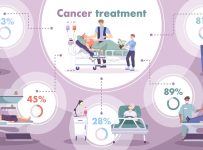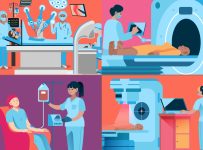5 Key Advantages of Precision Medicine
Precision medicine is transforming drug development, patient treatment, and healthcare delivery to maximize patient benefits. Here, we explore five key advantages of precision medicine and its potential to revolutionize the medical landscape.
Understanding Precision Medicine
Precision medicine (PM) customizes medical treatment to the individual characteristics of each patient. By analyzing a person’s genetic profile, PM enhances our ability to predict which treatments will be safe and effective for specific patient populations. This approach minimizes adverse drug reactions (ADRs) and ensures more successful treatment outcomes, while also reducing costs compared to the traditional “trial-and-error” approach.
1. Proactive Disease Prevention
Precision medicine enables early disease detection and prevention by using molecular markers to signal disease risk or presence before symptoms appear. This shift from reactive to preventive healthcare allows for early interventions that can be life-saving. For instance, women with BRCA1 or BRCA2 gene variations have significantly higher risks of breast and ovarian cancer. Genetic testing can guide preventive measures such as increased screening, prophylactic surgeries, and chemoprevention.
Currently, over 15,000 tests for more than 2,800 genes are available to identify inherited disease susceptibility. These tests can predict conditions ranging from hearing loss to sudden cardiac arrest. Although not every test leads to a therapeutic option, many allow for targeted prevention strategies, reducing the need for costly and invasive diagnostics.
2. Reduction in Trial-and-Error Prescribing
Traditional prescribing methods often involve trial and error, with up to 50% of patients not benefiting from the first prescribed drug. Genetic and molecular screening allows physicians to select optimal therapies the first time, avoiding unnecessary and costly attempts. For example, breast cancer patients with HER2 overexpression benefit from targeted therapies like Herceptin®, which can halve tumor recurrence when combined with chemotherapy.
Tests such as Oncotype DX® and MammaPrint® use genetic information to guide treatment decisions for breast cancer, identifying patients who will benefit from specific therapies and reducing the need for toxic treatments like chemotherapy.
3. Minimization of Adverse Drug Reactions
Adverse drug reactions (ADRs) are a significant concern, with about 5.3% of hospital admissions linked to ADRs. Genetic variations in drug-metabolizing enzymes, like cytochrome P2C9 (CYp2C9), can cause ADRs. For instance, the anticoagulant warfarin requires precise dosing to avoid excessive bleeding or clotting. The FDA now recommends genotyping patients before warfarin treatment to ensure accurate dosing, reducing the risk of serious ADRs.
4. Improved Patient Adherence to Treatment
Patients are more likely to adhere to treatment plans when therapies are personalized, proving more effective and having fewer side effects. This is particularly important for chronic diseases like asthma and diabetes, where non-compliance can worsen the condition. Knowledge of a genetic predisposition can motivate patients to adhere to their treatment regimen. Studies have shown that genetic diagnosis significantly increases patient adherence over time.
5. Discovery of Additional Uses for Drugs
Precision medicine can identify new applications for existing drugs within genetically defined patient populations. For example, the lung cancer drug Iressa® (gefitinib) showed no survival advantage in a general population but proved beneficial for patients with specific genetic mutations. This led to its approval as a first-line treatment for a subset of patients in the UK.
Conclusion
Precision medicine offers significant benefits for treating chronic and complex diseases. It allows for individualized treatment plans, early disease diagnosis, targeted therapies, and reduced healthcare costs over time. However, the medical community must continue to gather evidence to demonstrate that precision medicine can improve outcomes and control costs. When this evidence becomes compelling, precision medicine’s potential to revolutionize healthcare will be undeniable.


